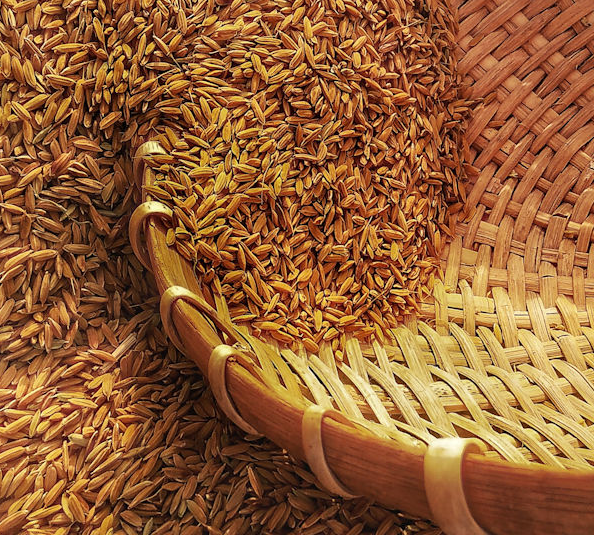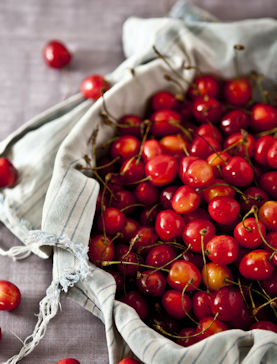Eurachem Blog
How chemical measurement supports the global food system

The theme for World Metrology Day 2023 is "Measurements supporting the global food system", so it’s a good time to take a look at the role of chemical measurement in the food chain. Chemical measurement plays a crucial role in supporting the global food system in a surprisingly wide range of applications.
One of the most important is food quality and safety. Chemical measurement allows for the detection and quantification of various chemical parameters, such as pesticide residues, heavy metals, contaminants, and additives. By analysing food samples using techniques like chromatography, spectroscopy, and mass spectrometry, potential hazards can be identified, and appropriate measures can be taken to maintain food safety.
A key parameter of grain quality is the protein content. Grain protein content is determined by protein measuring instruments for cereal grain and oilseeds. The Serbia Directorate of Measures and Precious Metals performs type evaluation and testing of these instruments using reference materials - samples of cereal grains and oilseeds, based on OIML R146:2016. In this way, DMDM provides reliable, accurate and traceable measurements of protein content in grain in Serbia.Jelena Bebic, DMDM
Eurachem National Representative
 Nutritional analysis is also important. By measuring the levels of vitamins, minerals, proteins, carbohydrates, and other essential nutrients, the nutritional value of food can be assessed. This information is vital for designing balanced diets, developing food policies, and addressing malnutrition or nutrient deficiencies in populations.
Nutritional analysis is also important. By measuring the levels of vitamins, minerals, proteins, carbohydrates, and other essential nutrients, the nutritional value of food can be assessed. This information is vital for designing balanced diets, developing food policies, and addressing malnutrition or nutrient deficiencies in populations.
Food authentication and traceability have also become important as awareness of food fraud in a global marketplace has grown. Chemical measurement is crucial for confirming the authentication and traceability of food products. By analysing specific chemical markers or profiles, such as stable isotopes or DNA markers, the origin, authenticity, and purity of food items can be verified. This helps combat food fraud, prevent mislabelling, ensure compliance with geographical indication regulations, and establish trust in the food supply chain.
Chemical measurement helps with manufacturing control, too, by monitoring and optimising various processes involved in food production, such as fermentation, brewing, and food preservation. By measuring parameters like pH, temperature, acidity, moisture content, and enzymatic activity, manufacturers can ensure consistent product quality, maximize production efficiency, and reduce waste.
Ukraine produces and exports food products in globally significant amounts. Reliability of food quality control depends upon the CRMs used to calibrate measuring instruments and to check the performance of the measurement procedures. Ukrmetrteststandart (Ukrainian Metrology Institute responsible for metrology in chemistry) provides laboratories with a number of CRM types for food analysis, including CRMs for density and volume fraction of alcohol in beer and low-alcohol beverages; Milk product CRMs for fat, protein and dry milk residue content; Flour falling number CRMs to control flour quality; CRMs of nitrogen (protein) in grain; CRMs of moisture and oil in seeds. Ovsiy Levbarg, Ukrmetrteststandart
Eurachem National Representative
 We expect food to be fresh when we buy it, and it is important to know how long we can safely keep food and how best to package and store it for long life. By analysing factors like lipid oxidation, microbial growth, and enzymatic activity, chemical measurement can help to evaluate the stability and freshness of food. This information is critical for setting appropriate storage conditions, determining expiration dates, minimizing food waste, and ensuring consumer safety.
We expect food to be fresh when we buy it, and it is important to know how long we can safely keep food and how best to package and store it for long life. By analysing factors like lipid oxidation, microbial growth, and enzymatic activity, chemical measurement can help to evaluate the stability and freshness of food. This information is critical for setting appropriate storage conditions, determining expiration dates, minimizing food waste, and ensuring consumer safety.
We have all heard how dangerous and debilitating allergic reactions can be. Chemical measurement aids in detecting and quantifying allergenic substances in food. People with food allergies or sensitivities rely on accurate labelling and the absence of allergens in their food. Analytical techniques such as ELISA (enzyme-linked immunosorbent assay) and PCR (polymerase chain reaction) can identify the presence of allergens like peanuts, soy, gluten, or milk proteins, enabling proper labelling and the prevention of allergic reactions.
 The global food system is also critically sensitive to our natural environment. Agriculture relies on clean water and air; on freedom from contamination; and on a stable climate. Chemical measurement determines levels of contaminants in air, water and soil, In the longer term, our food chain will depend on minimising our impact on climate. As the global climate shifts, it is critical to understand how greenhouse gases build up; how to reduce high-carbon fuel use; and how the climate is affected by, for example, ocean changes. High-accuracy chemical measurements plays a big part in climate science and carbon reduction, from monitoring ocean salinity for a better understanding of ocean circulation, to measuring isotope ratios in ancient ice cores to understand historical temperature trends. Chemical measurement helps determine the content of fuel gases and check the origin and composition of biofuels. It will even be important in developing better batteries for renewable energy storage.
The global food system is also critically sensitive to our natural environment. Agriculture relies on clean water and air; on freedom from contamination; and on a stable climate. Chemical measurement determines levels of contaminants in air, water and soil, In the longer term, our food chain will depend on minimising our impact on climate. As the global climate shifts, it is critical to understand how greenhouse gases build up; how to reduce high-carbon fuel use; and how the climate is affected by, for example, ocean changes. High-accuracy chemical measurements plays a big part in climate science and carbon reduction, from monitoring ocean salinity for a better understanding of ocean circulation, to measuring isotope ratios in ancient ice cores to understand historical temperature trends. Chemical measurement helps determine the content of fuel gases and check the origin and composition of biofuels. It will even be important in developing better batteries for renewable energy storage.
Overall, chemical measurement techniques provide crucial data and insights to support food safety, quality assurance, nutritional analysis, process optimization, and consumer trust throughout the global food system. Certified reference materials, calibration services, standards and accreditation all help to ensure accurate measurements.
Author: Steve Ellison
2023-05-18
More World Accreditation Day 2023 resources and information
- Further information on World Accreditation day 2023, and the role of measurements in supporting the global food system, can be found on the World Metrology Day website
- Video clips related to world metrology day can be found on the World Metrology Day links page.
- A series of videos describing how different National Measurement Institutes the role of measurements in support the global food system can be found on the BIPM website.
- For a YouTube playlist of different organisations' videos on measurements in support of the global food system, see the playlist on our youtube channel.

- Details
- Published: Thursday, 18 May 2023 17:37

